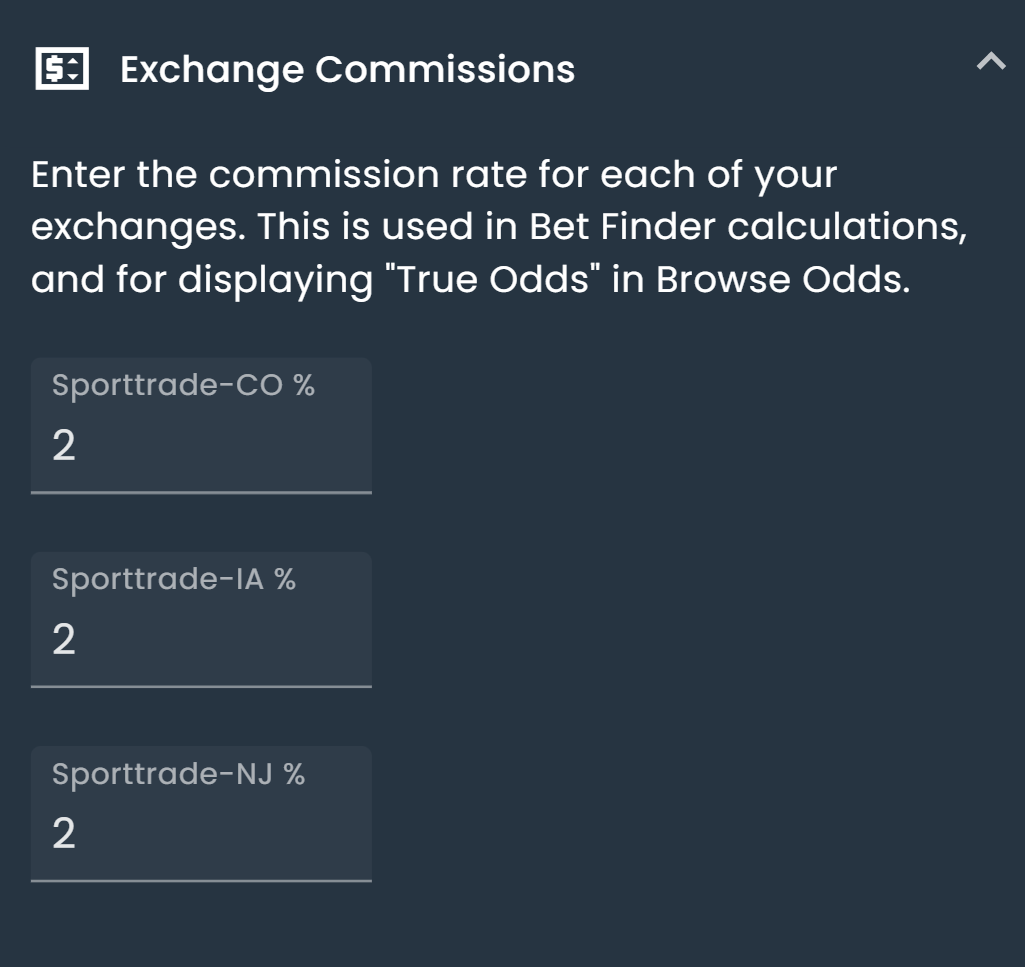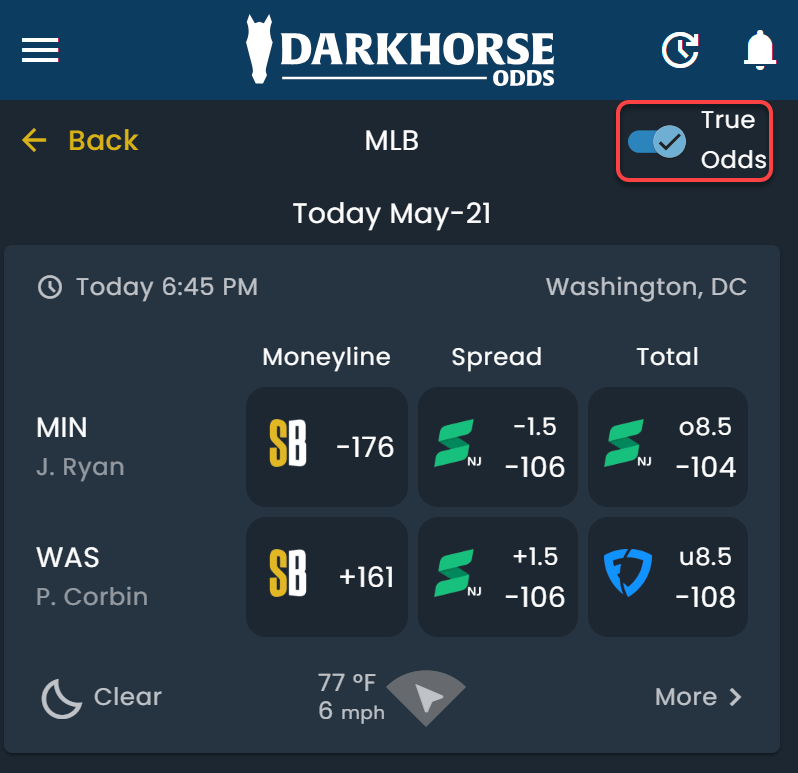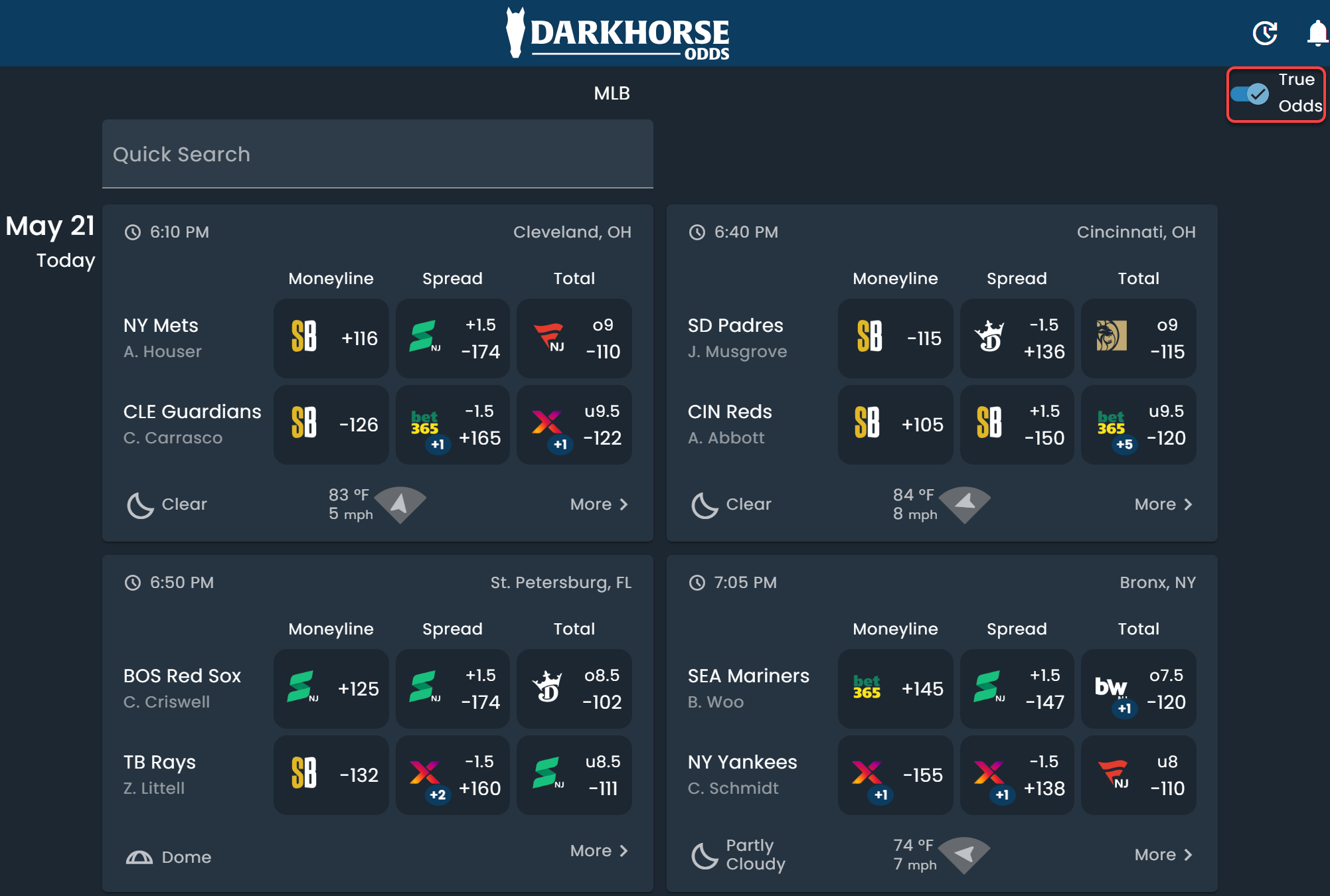Betting Exchanges: An Overview
Sporttrade Sign-up Offer
Sporttrade is offering 7 days commission free for all DarkHorse Odds customers that sign up with the promo code "DHO". This will increase all of your conversion rates by several percent, increasing your profit.
Full Terms and Conditions here.
Signup here.
Disclosure: DarkHorse Odds has an affiliate relationship with Sporttrade.
STX Sign-up Offer
STX is offering DarkHorse Odds customers reduced commission. Use promo code 'DHO' to start at the "Veteran" tier for their loyalty rewards program.
Signup here.
Disclosure: DarkHorse Odds has an affiliate relationship with STX.
Key Takeaways
- Betting Exchanges are matched bettor friendly
- They do not limit players and welcome arbitrage and hedging
- They often have better odds than traditional sportsbooks
- They are often peer to peer and do not assume risk like a sportsbook does
- Liquidity can be lower on exchanges than sportsbooks
What Is a Betting Exchange
A Betting Exchange (often just called an ‘exchange’) is a marketplace where you can bet on the outcome of sporting events. They work differently than traditional sportsbooks. A Betting Exchange is set up to pair two bettors on opposite sides of a bet. The amount lost by one bettor is paid to the winning bettor. This means the exchange does not assume any risk based on what happens in the event. Exchanges make money by taking a small commission from the winning bettor.
Because Betting Exchanges do not have a stake in the outcome of the event, they are “bettor friendly.” They do not limit their customers. This makes exchanges a very useful tool for Matched Betting, more on that below.
Important Terms
Matched: When a pair of bettors are matched on an exchange so that they cover each other's wagers.
Unmatched: When a bettor requests a bet on an exchange, but no one else takes the opposite side. The wager amount is returned when the event starts.
Liquidity: The amount of money that is available to be matched instantly on a particular bet at particular odds.
Commission: Fee charged to the winning bettor. This varies by exchange but is typically around 2% of net winnings.
How it Works
Exchanges will list odds and dollar amounts that are available to be instantly matched. Placing this type of bet removes any risk of the bet not being matched.
Let’s say the Chicago Bulls are playing the Brooklyn Nets, and the current offered money lines are:
- Chicago Bulls at +154 with $500 liquidity
- Brooklyn Nets at -160 with $800 liquidity
Matching a requested bet
In the example above you can bet $800 or less on the Nets money line at -160 and it will be instantly matched. That is because you are matching what someone else already requested. You can also bet $500 or less on the Bulls at +154 and it will be instantly matched.
Requesting a new bet
In addition to placing a bet based on the existing offers, you can request a new bet. Using the same example as above you could request the Bulls at +158. This bet would not be instantly matched. If you requested $100 on the Bulls at +158, new liquidity would appear on the exchange, for Nets -158 of $158.
- Your requested bet: $100 on Bulls money line at +158 to win $158
- The opposing unmatched bet: $158 on the Nets money line at -158 to win $100
Looking at the winnings from one bet matching the bet amount on the other side you can see how they are matched and why betting exchanges do not impose limits. They match bettors, which removes their risk from the bet’s outcome.
Exchange Benefits
Odds: Because the odds offered on exchanges are determined by what bettors request, natural market efficiencies drive more competitive odds than traditional sportsbooks. Sportsbooks often charge a 4-10% vig (aka juice or overround). The only fee for using an exchange is the commission which is often in the 2% range.
Limits: Betting Exchanges do not limit bettors. The more volume wagered on the exchange, the more they will profit. They do not take action against “sharp” bettors or matched bettors. They encourage it and rely on it as part of their business because it leads to more volume on the exchange and increased liquidity in their markets.
Exchange Downsides
Liquidity: A potential downside to betting exchanges is insufficient liquidity. If there is not someone willing to accept the opposite side of the wager you requested then your bet will not be placed.
Market Offerings: Exchanges offer fewer markets than traditional sportsbooks. Exchanges want to concentrate the majority of wagers on markets that will get matched. This means that exchanges tend to not offer player props, game segments, and other smaller markets.
Fewer Promotions: Exchanges are typically low-margin businesses and offer limited promotions compared to sportsbooks.
Matched Betting
Betting Exchanges are a great tool for Matched Betting. Exchanges want as much volume as possible. Match bettors want to bet as much as possible without fear of limits. This alone makes exchanges a great place to hedge sportsbooks promotions, and on top of that, they often have the best odds available.
It is 100% safe to withdraw your money from exchanges since they will not limit you. This creates a new option for managing your bankroll. You can effectively transfer your sportsbook balance to an exchange via matched betting. Losing on the sportsbook means you win on the exchange and you successfully transferred your bankroll. To the sportsbook, you will appear to be a losing bettor, and you can safely withdraw that money from the exchange.
DarkHorse Odds Specific Settings
Commission: In settings, you can set your commission separately for each exchange.
True Odds: In Browse Odds we have a toggle that allows you to change between displaying the odds as listed on the exchange, and the true odds once the commission is applied to your winnings.
Exchanges in the US
Betting Exchanges are new to the US. Currently, there is only one regulated exchanges in the US, Sporttrade. Sporttrade is an exchange in New Jersey and has plans to expand to other states. Sporttrade does operate as a sportsbook in Iowa and Colorado, and follows the same principles of not limiting bettors. Read more in our exchange-specific guides:
- Guide: Sporttrade
Exchanges in Ontario
STX is the only regulated betting exchange in Ontario.





